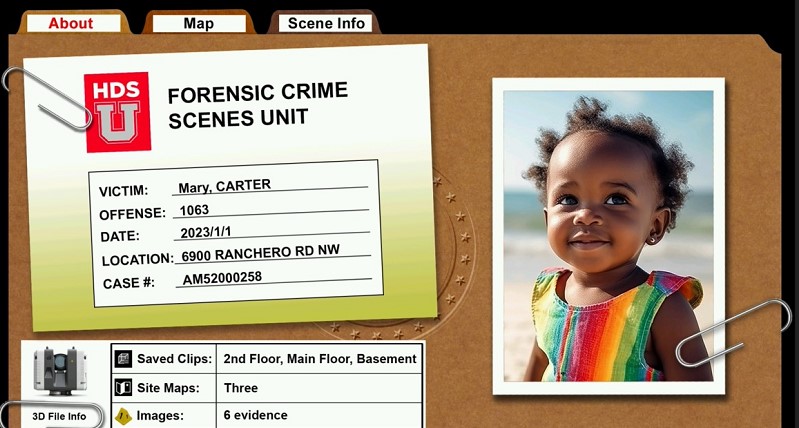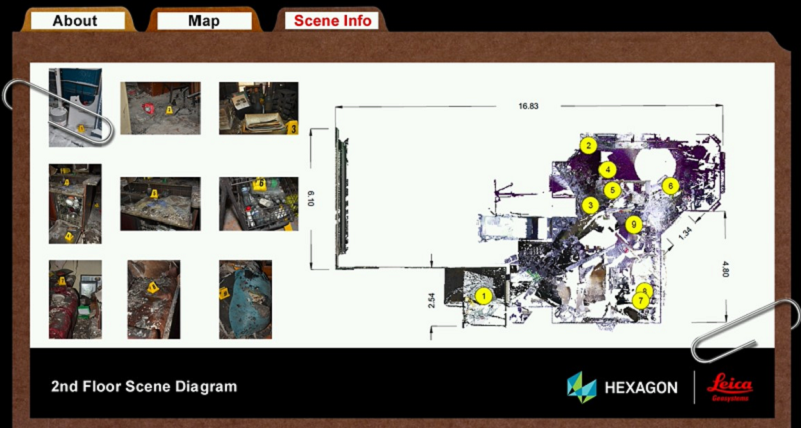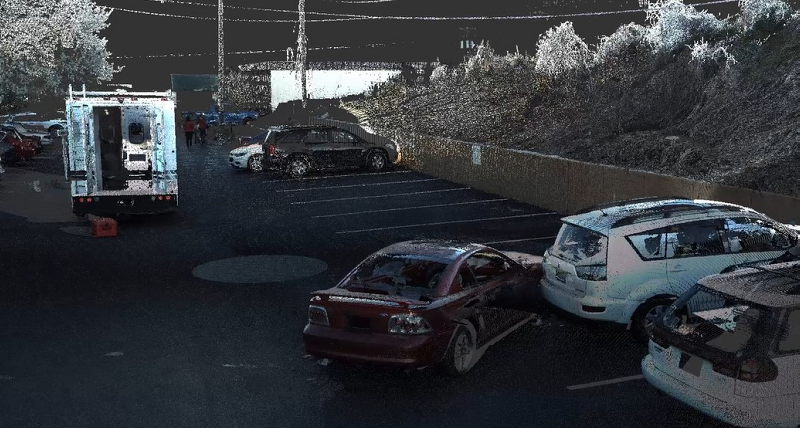How Calgary Police Service takes digital case files to the next level
A fresh perspective to point cloud data drives widespread adoption of laser scanning throughout the Calgary legal system.

Calgary Police Service excels at quickly capturing comprehensive and scientifically accurate data on crime scenes. The agency uses a high-speed, state-of-the-art Leica RTC360 laser scanner to capture every detail of scenes in minutes, and relies on the immersive, navigable point clouds to investigate cases and build compelling 3D reconstructions that allow the scene to be viewed from any angle.
There was just one challenge: Getting detectives and crown prosecutors to engage with the scan data so it could be used to solve more crimes.
Vincent T Joachim, a photo tech for the Calgary Police Service, was intrigued by 3D laser scanning technology. A recognized artist and filmmaker, Vincent brought a fresh perspective to the point cloud data. He designed an approach to deliverables that is so intuitive that it is driving widespread adoption of laser scanning throughout the Calgary legal system.
From data to compelling narratives: a better sitemap
Using SiteMaps within Leica TruView, a digital reality viewer, Vincent designed an interface that mimics a traditional police file for a homicide. Upon opening the interface, users see the “cover” of the police folder displaying crucial information: a photograph of the victim, the date of death, the location of the crime, and the case number. Then, with a few clicks, the user can navigate deeper into the file, where they find point clouds of the crime scene with embedded evidence files.
“The file gives all the important information upon opening, and it highlights the 3D data for easy navigation,” Vincent says. “For anybody new to Leica TruView or LGS files, they have the critical information right in front of them.”
In Calgary, Vincent sees the tool as vital to making the 3D crime scene reconstructions accessible to detectives. They can use the point clouds to understand distances and perspectives of a crime scene easier with greater ease than working off of solely 2D diagrams and photos, aiding their investigation. Additionally, the SiteMaps tool grants an intuitive means of access to crown prosecutors who are inundated with evidence and need an easy way to navigate the point clouds.
Presenting 3D evidence in the courtroom
The SiteMaps are a significant asset in the courtroom. Before trial, Vincent meets with the detective and crown prosecutor to determine the best way to present the evidence captured by the laser scanner. This might include a video presentation of the 3D data, a flythrough of the point cloud, and embedding photos, audio, and surveillance footage into the reconstruction.
“When the jury first sees the virtual file, it puts them into the crime scene,” he says. “They can see the photo of the victim and easily understand the environment where the event occurred.”
Organizing the evidence with laser scanning
With the proliferation of digital media, the evidence from a crime scene can include body cams, cell phone videos, surveillance footage, audio recordings, and more. By embedding the data into the SiteMap police file, investigators and prosecutors can see where the evidence was found and how it relates to the point cloud and 3D crime scene reconstruction.
“This technology is revolutionizing how police solve crimes, and I’m glad to be at the start of it in Calgary,” says Vincent, who now serves as the 3D Specialist for the City of Calgary. “You can embed audio, photos, and video into this 3D world, leading to a universe where you’ve reconstructed the crime scene. The viewer feels like they are in the crime scene, and this has a huge impact.”
Vincent is a special guest speaker at HDS University 2023, where he will share more details about how he constructed his virtual police file and how other law enforcement agencies and public safety departments can take advantage of similar tools.
“Any police service can use SiteMaps in this way and benefit from the 3D reconstructions laser scanning can offer,” he says.






























